Joint accounts offer an excellent way for couples, family members, or business partners to manage their finances effectively. This guide will look at the top recommendations for the best joint bank accounts for UK customers.
Whether you’re looking for low fees, high-interest rates, or other additional features, we’ll help you find the best joint account.
Best Joint Bank Accounts - Our Recommendations
| Name | Score | Visit | Disclaimer | |
|---|---|---|---|---|
 | 8.5 | Visitstarlingbank.com | ||
 | 8.5 | Visitrevolut.com | ||
 | 7.5 | Visitsantander.co.uk | ||
 | 8.0 | Visituk.virginmoney.com | ||
 | 7.0 | Visitwww.firstdirect.com/ | ||
 | 6.5 | Visitwww.natwest.com/ | ||
 | 7HSBC | 6.8 | Visitwww.hsbc.com/ |
Joint Bank Accounts Reviewed
We’ve rounded up the best joint accounts you can open in the UK and highlighted their best features.
Best joint accounts at a glance
Best for tracking spending: Starling Bank Joint Account
Best for overseas use: Revolut Standard
Best for budgeting tools: Monzo Joint Account
Best for cashback: Santander 1|2|3 Current Account
Best for earning interest on balance: Virgin Money M Plus Account
Best for ease of use and no account fees: First Direct 1st Account
Best for switching accounts incentive: NatWest Select Account
Best for overdraft: HSBC Advance Account
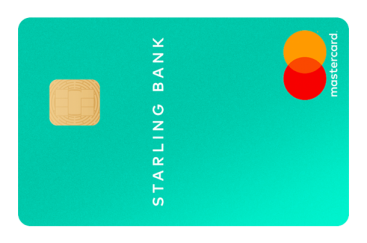
The Starling Joint Account scores top marks for tracking expenses, with its handy feature for keeping tabs on deposits and spending in real time. You’ll receive instant payment notifications and monthly spending insights.
I found Starling’s spending insights incredibly helpful. I could see exactly where our money was going in real time, which made managing shared expenses much easier.
The app also has a space for hosting household budgeting and expenses, allowing for pooling bills, taxes, rent, and other payments using a single account. It’s also possible to connect the Starling Bank Kite card and include your child in this account, which provides visibility to your child’s spending.
The joint account provides fee-free cash withdrawals abroad while charging low fees for the services.
Pros
- Spending insights
- Fee-free spending abroad
- Instant payment notifications
- User-friendly app interface suitable for all tech levels
Cons
- Low ATM withdrawal limit
- No rewards/cashback program
- No access to in-person customer service
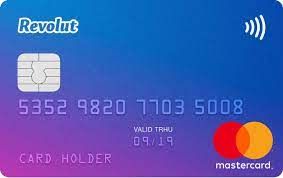
Revolut might be the new kid on the block, but it ticks all the vital boxes for a robust joint account. Where the Revolut Standard Account shines best, though, is in overseas transactions.
I often travel, so I really appreciate Revolut’s fee-free foreign exchange and the ability to send money in multiple currencies—it’s been a lifesaver abroad.
You can send and receive instant cash in 29 different currencies at no cost, supplemented with fee-free foreign exchange of up to £1,000 a month. That’s a class above operators like Santander, or any high-street bank for that matter, who will charge you hefty fees for overseas card transactions and withdrawals.
Pros
- Free sending and receiving cash in 29 different denominations
- Fee-free foreign exchange up to £1,000 monthly
- Smart budgeting and analytics tool
- Virtual cards provide added security for online purchases
Cons
- No interest on deposits
- No overdraft
- Requires both users to be tech-savvy
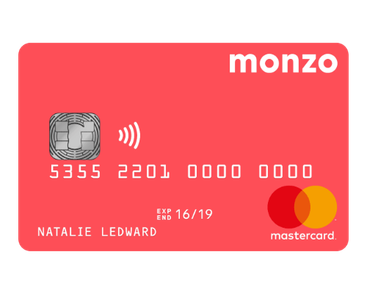
If you prioritise your budgeting options, the Monzo Joint Account could provide an excellent solution. The account’s app has a wide array of budgeting tools, allowing you to gain daily, weekly, or monthly spending insights that help with future budgeting efforts.
I love using Monzo’s budgeting features. It breaks down our spending into categories, helping us save more and stick to our goals as a couple.
Additionally, you’ll receive notifications when someone withdraws, makes a deposit, or when Monzo projects debits will be higher in the coming month. You can create Savings Pots to earmark varying savings goals, which are separate from the main account.
Pros
- Automated savings
- Categorising spending capability
- Flexible ISA offering 2% interest
- Easy to lock and unlock cards for added security
Cons
- No rewards
- Maximum cash deposit every six months (£1,000)
- No in-app live chat for complex queries
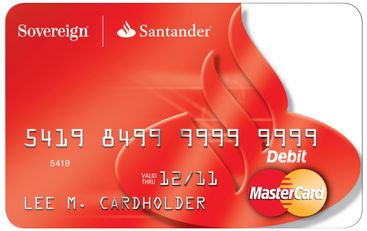
The Santander joint account is the go-to solution for couples looking to pay bills with its wide-ranging cashback options on domestic bills, insurance premiums, and mortgage payments. For instance, you’ll get cashback of up to 3% (capped at £5) on bills like water, gas, phone, broadband, electricity, council tax, mortgage repayments, paid-for TV package bills, and home and life insurance provided by Santander Bank.
I like how we earn cashback on everyday bills with Santander. It’s a small win every month that adds up over time—definitely worth the monthly fee.
For a monthly fee, you will also receive cashback while shopping at approved retailers. That’s in stark contrast to competitors like TSB Bank, which only provides a £5 cashback in the first six months, provided that you make at least 20 payments using your debit card.
Pros
- Cashback for most household bills and mortgage repayments, and insurance premiums
- 15% cashback on selected retailers like Sky and Morrisons
- Class-leading 1.75% monthly interest on balances up to £20,000
- Includes mobile alerts for unusual spending
Cons
- Monthly fees
- Overdraft charges high-interest rates
- Overseas card transactions and cash withdrawals charges
- Requires multiple direct debits to maximise rewards
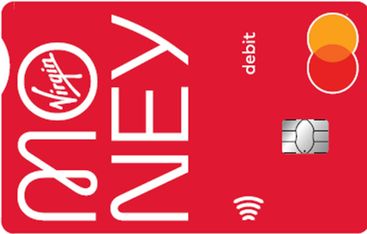
It may not be a major player in the industry, but Virgin Money packs a punch with its interest offerings. Account holders qualify for a 2.02% AER on deposits up to £1,000, and 2.52% AER on linked saver balances up to £25,000.
I chose Virgin Money for the interest rates. Getting over 2% AER on savings linked to the account made a big difference to our long-term goals.
You also gain access to an Exclusive Cash ISA, offering 3% AER. That’s miles better than competitors like Monzo, Lloyds Bank, and Starling Bank, which only offer less than 1% AER on savings.
Pros
- 2.02% AER on deposits up to £1,000
- Arranged overdraft only charges 19.9% APR on £1,200
- Alerts for withdrawals and deposits
- Excellent savings tools embedded in the app
Cons
- No signing-on fee
- Branch access is limited compared to high street banks
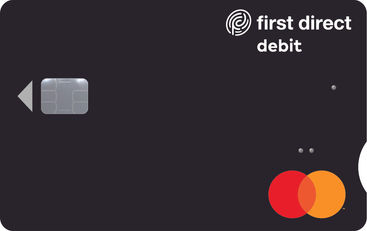
One of the main perks of the First Direct 1st Account is that it comes with no monthly account fees or minimum balance requirements.
As it’s an online bank, operating your joint account is a breeze. The app is all you need to conduct essentially all account operations, including contactless payments and online banking, and it has Google and Apple Pay integration.
I found setting up the First Direct joint account really simple online, and the app is intuitive. The £175 switching bonus was a great extra too.
You don’t have to visit a bank branch to open an account since you can do it on the app, and you can send any required documents electronically. You can open the account from the post office if doing it online proves challenging. Even when required to consult a bank representative, you don’t need an appointment.
Pros
- £175 welcome bonus if you switch from your current account
- Interest-free on the first £250 on overdraft
- 7% AER on savings between £25 and £300
- Excellent customer service with high satisfaction ratings
Cons
- You can only qualify for a welcome bonus if you’re a new client
- Financial status considerations to qualify for overdraft and welcome bonus
- No physical branches for face-to-face service
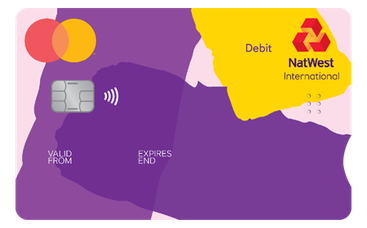
Need a reason to switch from your current account? NatWest’s Select Account could give you one. If you switch accounts using CASS through the mobile app, that entitles you to a £200 bank switching bonus, assuming you haven’t had a similar reward in the past.
There’s no requirement for joint account holders to have a current account to opt for a Select account, as is the case with other banks, most notably First Direct’s 1st Account.
Pros
- £200 Welcome bonus if you switch from current account
- No monthly fees
- Auto savings
- Joint holders can manage spending independently
Cons
- No cashback
- You can only claim welcome bonus after depositing at least £1,250
- Few features beyond basic banking

If you qualify, switching to this account unlocks a minimum £1,000 arranged overdraft. Opting for a £1,200 overdraft entitles you to a 0% EAR variable interest charge on the first £25.
The arranged overdraft has a 38.9% variable representative rate – which is better than the competing banks NationWide or Santander, whose representative rate stands at least 39.9% APR, while the likes of Starling don’t offer arranged overdrafts for joint bank accounts.
Although it’s not advisable to use, you also get an unarranged overdraft with the HSBC joint account, unlike rivals like NatWest and Nationwide, which only offer arranged overdrafts.
Pros
- £200 signing-up bonus if you switch accounts
- No account fees or minimum balances
- Fee-free transfers abroad to HSBC accounts
- Includes spending insights and budgeting tools
Cons
- You must meet eligibility criteria to receive the overdraft and welcome bonus
- 0% interest overdraft limit is fairly low at £25
- App occasionally suffers from login issues
How We Rate & Review the Best Joint Bank Accounts
We used the following criteria to rate and review the leading providers offering the best joint bank account in the UK:
Regulation: Considered offerings from reputable financial providers regulated by relevant authorities and with a proven track record.
Potential fees: We also looked at potential expenses, including but not limited to overdraft fees, currency conversion, and ATM withdrawals.
Account features: Here, we consider several factors, such as overdraft facilities, attractive interest rates, minimum balance requirements, monthly maintenance fees, and accessibility to ATMs.
Unique perks: All joint bank accounts offer additional perks although some accounts provide distinctive offerings, akin to packaged accounts, such as cashback, fee-free overseas spending, rewards programs, and switching and sign-up bonuses.
Different Types of Joint Bank Accounts Compared
Joint Bank AccountName | First Direct 1st Account | Santander 1|2|3 Current Account | Starling Bank Joint Account | Monzo Joint Account | Virgin Money M Plus Account | NatWest Select Account | HSBC Advance Account | Revolut Standard |
|---|---|---|---|---|---|---|---|---|
Overdraft Facilities | ✔️ | ✔️ | ❌ | ❌ | ✔️ | ✔️ | ✔️ | No |
Overdraft interest rate | 39.9% | 39.94% | N/A | N/A | 19.9% | 39.49% | 39.9% | N/A |
Monthly Fee | ❌ | £4 | ❌ | ❌ | ❌ | ❌ | ❌ | ❌ |
Maximum daily cash withdrawal | £500 | £500 | £300 | £200 each | £500 | £300 | £500 | First £200 free |
Fee-free spending abroad | ❌ | ❌ | ✔️ | ✔️ | ✔️ | ❌ | ❌ | ❌ |
Cashback and discounts | ❌ | Cashback | ❌ | ❌ | Cashback | ❌ | Discounts | Cashback |
Welcome bonus | £175 | ❌ | ❌ | ❌ | ❌ | £200 | Up to £200 | ❌ |
FCA Regulated | ✔️ | ✔️ | ✔️ | ✔️ | ✔️ | ✔️ | ✔️ | ✔️ |
What Is a Joint Bank Account?
Joint bank accounts are accounts shared or opened by two or more individuals with equal rights to control them. These are very similar to standard savings accounts.
What Are the Joint Bank Account Laws and Rules?
When opening a joint account, there are a few laws and rules that you need to be aware of. These include:
Access
Anyone who is named as an account holder has the right to access the money stored within the account. Thus, all account holders will receive a debit card that is linked to the account. Through these cards, users can:
Make contactless payments
Withdraw money from an ATM machine
Set up direct debits and standing orders
On the contrary side, while all named individuals in a joint account have equal access to the money, they are also equally responsible for paying any charges or fees associated with the account. For example, paying back an overdraft is the responsibility of all the account holders.
Who Can Open an Account
Anyone who is 18+ can open a joint account.
However, these are mostly opened by married and cohabiting couples to manage any shared bills by allowing multiple people to contribute to the account.
Who Can Withdraw Money
All the joint account holders can withdraw money from the joint account. This is regardless of whether or not the same person deposited the money.
Who Can Deposit Money
As is the case with withdrawals, anyone who is named on the joint account is able to deposit the money into it.
How Do Joint Bank Accounts Work?
While the laws mentioned above are relatively basic, they are not the only ones to consider. Other important factors include the degree of protection offered by a joint account, liability for income tax, and many more.
How Much Can Each Person Withdraw from the Joint Account?
All joint account holders are able to withdraw the full balance of the account - as well as any pre-arranged overdraft - if they have agreed to unilateral access. However, this is usually not possible when you and your partner have previously agreed that both of your signatures are required to make any withdrawals.
Can You Have a Personal Current Account and a Joint Current Account with the Same Bank?
It is possible to have a personal current account and a joint current account with the same bank. However, in this case, the bank has the right to transfer money from a personal account to a joint account to cover any outstanding debts.
Remember, you are held equally responsible for the joint account - even if you didn’t personally overdraw on the account.
Can You Have Two Joint Accounts with the Same Bank?
Yes, many banks enable you to have more than one joint account with them, whether those accounts are solo or joint. However, different banks have different rules around having multiple accounts, so you should contact your bank to find out whether this is possible or not.
Is There an Overdraft on the Savings Account?
Overdraft facilities vary according to each individual bank. Some banks - such as Barclays - offer their customers an overdraft facility subject to a check on the credit history of all account holders. However other providers - such as Starling - do not offer this option.
Is Our Money Protected in the Joint Bank Account?
Joint accounts up to £170,000, are protected under the Financial Services Compensation Scheme (FSCS).
Who Pays Income Tax on a Joint Bank Account in the UK?
As you are the co-owner of the joint account holder, you are therefore liable to pay 50% of any taxable income. This is the case even if the contributions to the account are unequal.
However, this is not the case with Inheritance Tax. If included in a Will, the joint account will be left to the surviving partner. This means that the value of the joint account will be exempt from Inheritance Tax.
It’s possible to convert a current account into a joint account by adding an extra account holder. Your bank will set out the method that you have to follow. Some banks may let you convert an account online, others may require you to visit a branch in person.
Who Can Have Joint Bank Accounts?
Anybody over the age of eighteen can open joint accounts with other people. These may include married couples, roommates, or even parents and their children.
How Many People Can Share a Joint Current Account?
The exact number of people who can share a joint account depends on the bank. It’s a good idea to look around if you intend to set up a joint account with more than two individuals. To cite an example, while Natwest only allows two individuals to open an account, Lloyds allows more than two, subject to approval from the branch.
Who Could Be Excluded from Holding a Joint Savings Account?
Again, the restrictions vary from bank to bank, but the most common restriction is for under eighteen individuals. In addition to this, you may also be excluded from opening an account if either you or your co-holder have a poor credit history.
Can I Have a Joint Account with More than One Person?
Majorly, joint accounts consist of two individuals; however, this is not a maximum limit. Indeed, a lot of banks allow you to add more than two individuals - although the exact number may vary widely with each bank.
Can We Each Have Our Own Debit Card with a Joint Current Account?
When you set up an account, each account holder has a separate debit card. This is linked with the joint account to use for various purposes such as direct debits, standing orders, and ATM withdrawals.
Do You Have to Be Married to Get a Joint Account?
No, it is not at all mandatory! You can open a joint account with anyone regardless of your marital status.
A joint account can be a good idea for married couples. However, finances can be a touchy subject. It is important to decide what bills will be paid from the account, as well as a fair responsibility for financial contributions. For example, if one of you makes 60% of the household income, it makes sense that they pay 60% of contributions to the account.
Who Owns the Money in a Joint Bank Account in the UK?
The money in a joint account is owned equally by all the parties that are classed as account holders. This is regardless of how much each person has contributed to the account.
What Happens to a Joint Account When One Person Dies?
If one account holder dies, the surviving account holder will automatically gain control of the account without any Will or the court’s permission. This is due to the fact that the account is regarded as being under the rules of survivorship.
Reasons to Be Cautious with Joint Bank Accounts in the UK
A few important factors that you need to be aware of before opening a joint account are described below:
Do You and the Co-owners Have a Similar Attitude toward Money?
One of the biggest factors to consider is the attitude that you and your co-owners have towards money. If one of you prioritises spending over saving, this can decrease the amount of money you have saved up - leaving you at risk in case of any unexpected bills that need to be paid instantly.
What Happens if You and the Co-account Holder(s) Become Separated or Break Up?
If you separate from your partner, it’s highly advisable to contact and immediately inform the bank. As a result, the bank can freeze the account - preventing either party from owning everything.
Banks can then help you and your co-holders settle any joint expenses you may have - such as outstanding rent, utility bills, and child care. This may be done by agreeing to a fair financial split of expenses. This can ensure that you are able to split up as amicably as possible where money is concerned.
What Happens if Your Bank or Building Society Goes Bust?
FSCS protection will ensure you get your money back if your bank or building society goes bust. You can crosscheck on the Financial Conduct Authority’s (FCA) website if your bank is covered by the FSCS or not.
Handling disagreements within joint accounts
There are multiple ways to handle disagreements with other account holders. The first step should always be to try and come to an agreement on a fair and amicable solution, as this can prevent unnecessary resentment on all sides.
However, if you can’t resolve things yourselves, the next step should be to involve a mediator to act as an impartial third party. It’s a good idea to choose someone with no bias towards either party, such as a mutual friend.
If mediation also doesn’t work, it may be necessary to seek legal advice as this can help you explore options for resolving a split.
Finally, it’s generally advisable that you should only contact the bank if you split with the other account holder. Although this may prevent one party from taking all the money, it may cost you time and money.
What Are the Pros and Cons of Having a Joint Bank Account?
While a joint bank account certainly has some benefits, it is also associated with numerous drawbacks that you need to be aware of before you take the plunge.
Pros
- Easier to pay bills - It’s much easier to pay all your bills from one account. This reduces the chances of a bill slipping through the net.
- Legal protection - If you or your partner unfortunately passes away, your money is protected under the rules of survivorship. This ensures that the surviving person is taken care of financially.
- You can see where the money is going - Owning a joint account allows you to see where every penny is being spent. This can help you cut unnecessary costs and save money
- Extra financial protection - The FSCS protects a joint account up to the value of £170,000 - twice the amount of an individual account.
Cons
- Lack of control - As you both have debit cards linked to the joint account, you are unable to control the spending of the other person. So, if your partner spends money lavishly, you both will face the consequences.
- Responsibility for extra debt - When you sign up for a joint account, you give your partner access to your money. If they have any outstanding debts, you will automatically become liable for paying them off - even if you had nothing to do with accruing the debt in the first place.
- No privacy - While the transparency provided by a joint account can help foster a sense of trust, it also means you have no privacy. Far from generating trust, this may even lead to one or both parties fostering a sense of paranoia.
- Termination of the relationship - Breaking up is never nice, and it can be hard to separate yourselves from each other - especially if your finances are connected. In the worst scenario, the other person may simply take all the money in the account and leave you penniless.
What Are Joint Accounts Used For?
Joint accounts can be used for a variety of reasons. These include:
Sharing Bills
The most common reason why two individuals might enter into a joint account is to split various bills. If you both are putting money into one account, it eliminates the chances of any potential arguments and also makes both parties responsible for paying the bills equally.
However, not all joint accounts are created equally. The three best accounts for paying bills are as follows:
First Direct
Account fee is an important aspect when you’re looking for a joint account. Fortunately, First Direct doesn't charge any fee! Not only that but there’s no minimum balance requirement, so you don’t have to worry about keeping money in the account purely for the sake of keeping it open.
Creating an account with First Direct is easy to set up and use. Everything can be done through the Internet; therefore, no need to head to a branch. What’s more? The users can get access to all online banking features from the mobile app as well.
Starling Bank Joint Account
We’ve all been there. You think you’re within your spending limits, but when you check your account, you wonder where all your money has gone! This can be an especially nasty surprise if there are a bunch of pending payments you forget about.
Fortunately, Starling Bank’s Joint Account is excellent at tracking spending as it offers spending insights in real-time. However, various other providers may have a time delay until you can see what you’ve spent your money on.
It’s not just your own spending that you can keep track of but you can also track your child’s spending habits through the Starling Bank Kite card.
HSBC Advanced Account
While having to go overdrawn is never a nice experience, there are times when it’s simply unavoidable. That’s where HSBC really comes in, as its overdraft can help provide a potential safety net.
Those who qualify can automatically unlock a minimum £1,000 arranged overdraft with a variable interest rate of 38.9%. As with any debt, we strongly advise that you must not borrow more than you can afford and that you pay it off in full as soon as possible.
Create Savings Goals
Achieving your financial goals requires focus and discipline. One of the best ways to do this is to set clear goals. These will help you stay focused, and you’ll be more likely to achieve them.
Convenience
It becomes easier to manage bills when they are all paid from a single account as this reduces the risk of any bills slipping through the net.
Access to Overdrafts
An overdraft can be particularly useful if your finances are going through a lean period and you need a small cushion to see you through until payday arrives. However, the size, availability, and fees associated with an overdraft will vary according to each provider.
Clearing Debt
Working as a team can ensure that any debt you have is cleared much faster. This can save you a significant amount of money as you will avoid paying exorbitant interest rates.
Legal Protection
A joint account is protected under the rules of survivorship. This means that the money automatically transfers to the other account holder if either of you passes away.
Managing the Finances of Other Family Members
Adding children to a joint account allows you to keep track of and manage their spending habits. This can be particularly useful in preventing the child from squandering the money.
An elderly person may also find it useful to add another person to their accounts to manage their money for them. This can be particularly useful if they are not tech-savvy and do not fully understand how online banking works.
Spending Insights
Budgeting can be challenging if you don’t know where your money is going. However, a joint account can solve this problem by giving you access to all of your spending decisions in real time.
This can be a great way to spot unnecessary bills - which can help you save a significant amount of money.
Earning Interest
Combining your finances with another person can increase the amount of interest you get. Indeed, this can really add up over time - as demonstrated in the example below.
Initial amount | Interest rate | Amount of interest | Amount after a year |
|---|---|---|---|
£50,000 | 4% | £2,000 | £52,000 |
£100,000 | 4% | £4,000 | £104,000 |
Rewards and Cashback
Some banks may offer cashback on your spending. For example, Santander offers 1% cashback on bills and supermarket spending. The more you spend, the more your cashback increases.
Extra Financial Protection
Joint accounts are protected up to the value of £170,000 by the FSCS - twice the amount of an individual account.
You can have your Universal Credit paid into a joint account if you choose to.
Different Types of Joint Bank Accounts Compared
These types of bank accounts are not one-size-fits-all, as there are different types of joint accounts that you can choose from - each having its own uses.
These different types of joint bank accounts include:
Joint Current Accounts
A current account is the most common type of joint account. They can be managed easily by using an app, internet, phone or a branch visit. Both parties will be given individual debit cards that are linked to the account.
What Are They Useful For?
Joint current accounts are extremely useful for keeping track of daily spending, such as bills, rent and groceries. They can also be used to set up Direct Debits and standing orders.
Average Returns
Please bear in mind that many providers, such as Starling and Monzo will pay very little interest, if any is paid at all. In Santander’s case, the interest rate of 2% AER is limited to £20,000. Meanwhile, Virgin Money offers 2.02% on balances up to £1,000.
Eligibility Criteria
Setting up a joint current account requires all parties to provide proof of ID and proof of address. However, it is important to remember that all parties need to go through a credit check before it can be opened.
This is why it is essential to be upfront and honest about your personal financial health. Failure to disclose a low credit score or past debts may lead to your account being denied.
Joint Savings Account
A joint savings account is similar to a current account, where the co-holders are able to deposit and withdraw money from the account. However, there are also some key differences in the average return on savings and eligibility criteria.
What Are They Useful For?
Joint savings accounts are very useful for saving money. They typically offer higher interest rates than a standard current account, and this can compound significantly over time.
Average Returns
The returns you receive on a joint savings account will largely depend on the type of account you choose to go with. These include:
Instant access savings accounts – you can access your money at any time. For example, Monzo offers an interest rate of 3.7% AER on its Instant Access account.
Fixed-rate savings accounts – these provide a higher rate of interest than a standard savings account, but you are required to lock your money away for a set period of time. For example, Starling offers an interest rate of 3.25% AER on its Fixed Saver Account.
Regular savings accounts – these require you to pay a certain amount into the account each month, in exchange for higher interest rates. For example, Santander offers an interest rate of 5% AER on its Regular Savings account that is fixed for 1 year.
Please note that the exact accounts on offer will vary according to each provider.
Eligibility Criteria
Much like a standard account, setting up a joint savings account will require all parties to provide proof of ID and proof of address.
However, unlike with a current account, applying for a joint savings account won't have any impact on your credit score, as credit checks are unnecessary for opening a savings account.
Joint Credit Cards
A joint credit card is when two or more individuals use the same credit card account to make purchases through their own cards.
However, it is the responsibility of the main account holder to clear the balance. As such, it is highly advisable that the co-holders are on the same wavelength when it comes to spending money.
What Are They Useful For?
Joint credit cards can be incredibly useful for boosting a credit score - particularly if one person does not have a good individual score and needs some help to improve it.
By using the credit card of someone who has a higher score, this person may also be able to take advantage of lower interest rates and higher credit limits rather than using their own card.
Average Returns
The average return on your spending will vary according to each provider. While some providers, namely American Express, offer reward cards such as travel discounts, others may offer cashback on your spending. For example, Santander’s All In One Credit Card offers a cashback rate of 0.5%, with up to 15% on retail spending.
Eligibility Criteria
No credit searches are carried out on an additional cardholder, although one co-holder still needs to be accepted for a credit card in the first place.
Features of Joint Bank Accounts
Joint bank accounts don’t come with too many additional bells and whistles other than a custom accessibility set-up and the ability to include a kid’s bank account. Here’s a rundown of the main features of joint current accounts:
Payment authorisations
When applying, each joint account holder is typically asked to sign a document that sets out how the account will be set up. This grants certain flexibility to joint bank accounts for different use cases.
Either-to-sign – most joint accounts operate on this basis, where each account holder can withdraw money or make payments independently.
Both-to-sign – in this case, both (or every) parties need to authorise the payments and withdrawals. This comes in handy for business partners, while it can be impractical for couples or housemates.
Adding children to the account
Some banks, most notably Starling, may also allow you to link your child’s account to your joint current account – this way, you can stay on top of their spending, and manage your family finances through a single outlet.
Overdraft facilities
Several banks offer arranged overdraft facilities for joint accounts. For instance, the HSBC Advance Account and Virgin Money M Plus have some of the most competitive arranged overdraft rates among UK banks.
Interest on balance
Some banks also allow earning interest on either current balance, or via linked saving accounts. Virgin Money M Plus account, for example, offers 2.02% interest on deposits up to £1,000 and 2.52% on linked saver balances up to £25,000.
Tax-free savings
The interest you earn on your balance is usually subject to taxation – but everyone has some level of tax-free allowance. Basic-rate taxpayers can earn up to £1,000 interest on their savings without having to pay tax, whereas higher-rate taxpayers can earn up to £500 worth of interest, completely tax-free.
For joint account holders, interest is usually split, and goes towards each holder’s Personal Saving Allowances (PSA).
Spending insights
A fixture of online banks (although it’s being picked up by their traditional counterparts), spending insights provided daily and monthly, along with instant payment notifications can help you and other account holders maintain visibility on your account, and stay on top of your spending. Starling and Monzo’s joint accounts are excellent solutions for this.
Cashback & rewards
Using certain accounts can earn you rewards or cashback. For example, you may be eligible for a £200 welcome bonus offered by NatWest Select Account if you switch accounts through CASS using the smartphone app. The Santander 1|2|3 Current Account, on the other hand, offers cashback for insurance premiums, most domestic bills, and mortgage payments to your bank.
Common Charges of Joint Bank Accounts
Monthly fee
While most joint accounts do not have monthly fees, some charge up to £10 for account maintenance. For instance, Santander charges £4.
Transaction fees
Expect fees on services like cheque deposits, foreign currency transactions, and cash withdrawals. Note that some banks charge fees on joint accounts’ failed transactions, such as a failed direct debit.
Overdraft fee
Banks usually charge overdraft fees and interest on any funds borrowed, like the 39.49% APR variable charged by NatWest Select account for arranged overdrafts.
How to Sign Up to a Joint Bank Account?
Opening a joint account is fairly straightforward, but there are a few things that you need to be aware of before signing up for a joint account.
1. Check to See if You Are Eligible
2. Make Sure You Have the Right Documents
3. Make Sure You Both Have a Good Credit Score
4. Find the Provider That Is Right for You
5. Apply for and Open an Account
Joint accounts can be a good idea if you and your partner have the same attitude towards money. However, if one of you prioritises spending over saving, this could lead to problems, as both of you are responsible for any accumulated debt. Likewise, joining finances could negatively impact your credit score if the other person’s personal credit score is bad.
On the other hand, joint accounts can be a good way to boost your credit score. It can also improve trust in a relationship if your partner shows that they can be responsible with money.
How to Choose the Best Joint Bank Accounts
You can consider some of these features when selecting a joint account:
How many people will be using the account?
A typical joint bank account has two account holders. However, some financial institutions allow multiple people to create a joint account.
The account can be convenient if you share a bill with several people, like the rent of a shared house. Inquire with individual banks if you wish to open a joint account with more than two people.
Are you planning on adding your child to your plan?
If you have a child or are a guardian to one, it might be easier and cost-effective to have their account linked to yours.
With this functionality, you can track and pay their debts hassle-free. Not all joint accounts provide this, so be on the lookout if you need such functionality.
Do you prioritise earning interest on your balance?
Not all joint accounts offer interest on savings, which is fine if you intend to use the account to settle minor bills.
Not having interest-earning abilities can be a severe hindrance to more considerable savings. If, for instance, you have a savings goal like a downpayment for a house, renovations, or a wedding, a high-interest-earning joint account could be of great help.
In such an instance, it helps to look for a joint account providing the highest interest and with no restrictions on the number of deposits that earn interest.
Key Terms to Know
AER - AER, or Annual Equivalent Rate, is how banks can show you how much interest you would earn from their different accounts each year
Basic bank accounts - these are for people who don’t qualify for a regular current account. While they allow you the basic features of a standard current account - such as the ability to manage your expenses - they may also have restricted features, such as no overdraft.
Current Account Switch Service - this is a free method that allows you to switch current accounts between banks and building societies
Direct Debit - this is where you give a company permission to take money from your bank account on a pre-agreed date. Direct Debits will settle the amount in full as long as there are sufficient funds in your account
Financial Services Compensation Scheme (FSCS) - this protects your money if your bank or building society goes bust. The total amount covered is £85,000 for a single-person account or £170,000 for a joint account.
Overdraft - this lets you borrow money by taking out more than you have in your account. Going ‘overdrawn’ may come with fees, and the size and availability of the overdraft will be determined by your account provider.
Standing order - this is an instruction to your account provider to pay a bill on your behalf. Unlike with a Direct Debit, you can choose how much you want to pay.
FAQ
What are the disadvantages of having a joint account?
How much should couples put into a joint account?
Do joint accounts affect credit scores?
Can I take my name off a joint account?
What are the best joint bank accounts for couples?
Can any bank account be a joint bank account?
How many people can open a joint bank account?
Can I have my own separate bank account as well?
Can I open a joint bank account online?
Can I access a joint bank account through mobile banking?
Can unmarried couples have a joint bank account?
How does power of attorney work with a joint bank account?
Do social services check your joint bank account in the UK?
How many married couples have joint bank accounts?
Do joint bank accounts have to go through probate?
How do you manage a bank account for someone with dementia?
Conclusion
Selecting the best joint account comes down to what matters most to you and your co-account holder. Whether it’s spending abroad, budgeting tools, cashback, or interest on balances, each account in our roundup caters to different needs. Before settling on an option, consider key factors such as fees, overdraft terms, account accessibility, and any added perks like rewards or bonuses.
Our top recommendation is the Starling Bank Joint Account. We suggest this as the best all-rounder because of its exceptional features for managing shared finances. It offers real-time payment notifications, detailed spending insights, and a user-friendly app that supports effective budgeting and expense tracking. The ability to add a child via the Starling Kite card is a thoughtful bonus for families, while fee-free overseas spending adds even more value for those who travel. Despite the lack of cashback or high interest, the simplicity, transparency, and smart financial tools make Starling Bank stand out as a solid choice for most joint account users.








.jpg)
.jpg)




